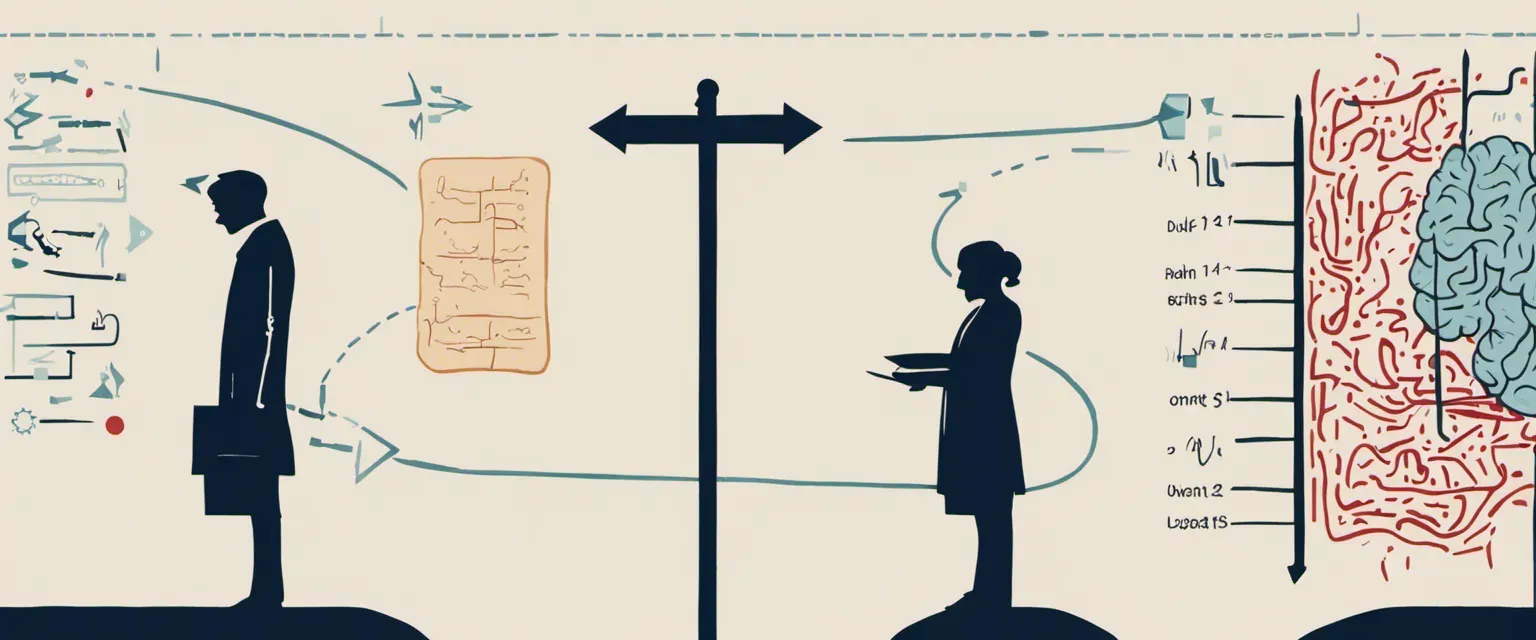– Influencer & Jack
Literature has always been a powerful medium for exploring the complexities of human behavior and leadership. It offers us the opportunity to gain insights into the minds of great thinkers, innovators, and influencers who have shaped our world. In this comparative study, we will delve into two distinct books that provide valuable perspectives on leadership and personal development: “Influencer” co-authored by Joseph Grenny, Kerry Patterson, David Maxfield, Ron McMillan, and Al Switzler, and “Jack” by Jack Welch.
“Influencer” presents an in-depth analysis of how individuals can become agents of change, influencing themselves and others to achieve remarkable results. Drawing upon extensive research and real-life examples, the authors outline a framework for understanding and harnessing the power of influence in various domains, be it personal, organizational, or societal.
On the other hand, “Jack” provides readers with an intimate glimpse into the life and leadership philosophy of one of the most renowned business executives of our time, Jack Welch. Through his own experiences as CEO of General Electric (GE), Welch shares valuable lessons on effective management, strategic decision-making, and the importance of empowering people to drive organizational success.
Although these books differ in their approach and focus, they both aim to shed light on the principles, strategies, and mindset required to excel in leadership roles. By comparing and contrasting the key themes, methodologies, and underlying philosophies presented in “Influencer” and “Jack,” we hope to gain a comprehensive understanding of the multifaceted nature of leadership and its impact on individuals, organizations, and society at large.
In the following sections, we will explore the main concepts discussed in each book, analyze their strengths and weaknesses, and identify areas where they intersect or diverge. By doing so, we hope to provide readers with a nuanced perspective on leadership and personal development, drawing insights from diverse sources and perspectives.
Let us now embark on this comparative study of “Influencer” and “Jack,” aiming to extract valuable lessons that can inform and inspire aspiring leaders in various spheres.
Summary of Two Books
Influencer
In their book “Influencer: The Power to Change Anything,” the authors explore the concept of influence and provide a comprehensive framework for individuals looking to effect meaningful change in their personal and professional lives. Drawing from extensive research and real-world examples, they offer practical strategies to become effective influencers.
The book starts by emphasizing the importance of identifying vital behaviors that can lead to desired change. The authors argue that changing a few key behaviors can have a significant impact on achieving desired goals. They then introduce six sources of influence, which include personal motivation, social motivation, ability, structural motivation, social ability, and structural ability. These sources help readers understand how to create a supportive environment conducive to change.
Throughout the book, Joseph Grenny, Kerry Patterson, David Maxfield, Ron McMillan and Al Switzler illustrate their ideas through engaging stories of successful influencers who managed to bring about significant transformations in various domains of life, such as healthcare, education, and personal relationships. By sharing these examples, the authors provide inspiration and practical insights into how anyone can become an influencer.
Key themes discussed in the book include finding vital behaviors, harnessing the power of positive and negative consequences, using social networks and relationships effectively, leveraging personal and social motivation, and creating systems and structures that support change.
The authors’ approach is based on the belief that change is possible and that everyone has the capacity to become an influencer. By following the strategies outlined in the book, readers can develop the skills necessary to make a lasting impact and create positive change in their own lives and the lives of others around them.
Overall, “Influencer” offers a valuable roadmap for individuals seeking to become influential leaders who can drive transformation and achieve their goals by understanding the science behind human behavior and effectively applying it in their daily lives.

Jack
Jack: Straight from the Gut” is an autobiographical book by Jack Welch, the former Chairman and CEO of General Electric (GE). In this remarkable account, Welch shares his personal journey and leadership philosophy that transformed GE into one of the most successful and admired companies in the world.
The book starts by delving into Welch’s early life and career, highlighting his relentless drive for success and his passion for winning. He shares valuable insights on his management style, famously known as the “Welch Way,” which emphasized meritocracy, candid communication, and continuous improvement.
Welch recounts the various challenges he faced while leading GE, including tough decisions on acquisitions, divestitures, and employee restructuring. He openly discusses both his triumphs and failures, providing a candid view of the business world.
Throughout the book, Welch emphasizes the importance of developing a strong corporate culture, fostering innovation, and empowering employees at all levels. He shares numerous anecdotes and lessons learned from his experiences, offering practical advice on how to navigate complex business environments.
Beyond his work at GE, Welch ventures into broader topics such as globalization, leadership development, and the role of CEOs in society. He imparts wisdom on managing change, building effective teams, and driving organizational performance.
“Jack: Straight from the Gut” provides readers with a firsthand account of Welch’s remarkable career and offers valuable insights into his leadership philosophy. It serves as an inspiring and instructive read for anyone interested in business, leadership, and achieving sustainable success.
Comparison Between Two Books
Similarities in Embracing Change
- Importance of mindset shift:
Both books emphasize the significance of adopting a new mindset when it comes to embracing change. They argue that having a positive and open attitude towards change is essential for personal growth and success.
- Highlighting the benefits of change:
“Influencer” and “Jack” both underscore the positive outcomes that can arise from embracing change. They illustrate how change can lead to improved performance, increased opportunities, and overall personal development.
- Addressing resistance to change:
Both books acknowledge that resistance to change is common among individuals. They offer strategies and techniques to overcome this resistance and encourage readers to push beyond their comfort zones to fully embrace change.
- Supporting the idea of continuous learning:
“Influencer” and “Jack” advocate for the ongoing pursuit of learning and adapting to new circumstances. They emphasize the importance of developing new skills, seeking feedback, and being receptive to evolving trends in order to thrive in a changing world.
- Empowering individuals to take action:
These books motivate individuals to take responsibility for their own lives and actively engage in change. They provide practical advice on setting goals, overcoming obstacles, and taking deliberate actions to create positive transformations.
- Recognizing the potential for personal growth:
Both books highlight how embracing change can lead to personal growth and self-discovery. They encourage readers to see change as an opportunity for self-improvement rather than something to be feared or avoided.
- Featuring real-life examples:
“Influencer” and “Jack” utilize real-life stories and case studies to illustrate the power of embracing change. By showcasing individuals who have successfully navigated through challenging transitions, they inspire readers to believe in their own ability to embrace change and achieve their goals.
Overall, “Influencer” and “Jack” share a common theme of embracing change as a pathway to personal and professional advancement. They both provide practical guidance, encouraging readers to develop a positive mindset, overcome resistance, and take active steps towards embracing change for their own benefit

Divergence in Embracing Change
Divergences in Embracing Change:
While both books focus on the theme of change, they approach it from different perspectives, which leads to divergences in how change is embraced:
- Contextual Difference:
Influencer” primarily focuses on influencing others and creating change on a broader scale, whereas “Jack” explores personal change and growth from an individual’s perspective.
- Methodology vs. Personal Experience:
“Influencer” offers a methodological approach to change, emphasizing the use of persuasion, motivation, and social influence strategies. In contrast, “Jack” showcases change through the lens of personal experience, allowing readers to connect with the character’s emotions and motivations.
- Analytical vs. Narrative Style:
“Influencer” adopts an analytical style, presenting research-based evidence, case studies, and practical strategies to facilitate change. On the other hand, “Jack” employs a narrative style, using storytelling techniques to engage readers emotionally and convey the internal struggles of the character.
- Focus on External Factors vs. Internal Transformation:
“Influencer” highlights the importance of external factors such as social systems, accountability mechanisms, and group dynamics in effecting change. In contrast, “Jack” places a greater emphasis on internal transformation, exploring themes such as self-reflection, personal growth, and discovering one’s true potential.
- Non-fiction vs. Fictional Approach:
“Influencer” is a non-fiction book grounded in research, while “Jack” is a fictional narrative. This distinction allows “Influencer” to provide concrete strategies and techniques for influencing change, while “Jack” offers a more subjective and imaginative exploration of change through storytelling.
Overall, the key divergences between these books lie in their approach, methodology, perspective, and writing style. However, both books aim to inspire readers to embrace change and recognize the power they have to make a difference in their own lives or the lives of others.
Conclusion
Both “Influencer” and “Jack” are books that offer valuable insights and perspectives, but their subject matter and approach differ significantly. Here’s a brief overview of each book to help you decide which one may be more worthy of reading based on your preferences:
“Influencer: The Power to Change Anything” by Kerry Patterson, Joseph Grenny, David Maxfield, Ron McMillan, and Al Switzler:
- This book focuses on the principles of behavior change and how individuals can become effective influencers in various aspects of their lives.
- It offers a structured approach, backed by research, to understand how behaviors are influenced and how to create lasting change.
- If you’re interested in personal development, leadership, or understanding the psychology behind influence, this book is a great choice.
“Jack: Straight from the Gut” by Jack Welch and John A. Byrne:
- This book is a memoir by Jack Welch, the former Chairman and CEO of General Electric (GE), where he shares his experiences and leadership philosophy.
- Welch discusses his strategies for managing and transforming GE into one of the world’s most successful companies.
- If you’re interested in learning about corporate leadership, management techniques, and gaining insights from a highly successful business leader, this book could be a good fit.
Ultimately, the choice between the two books depends on your interests and what you hope to gain from reading. Do you want to learn about influencing behavior and creating change, or are you more interested in the experiences and insights of a prominent business leader? Consider your preferences and select the book that aligns best with your goals.



